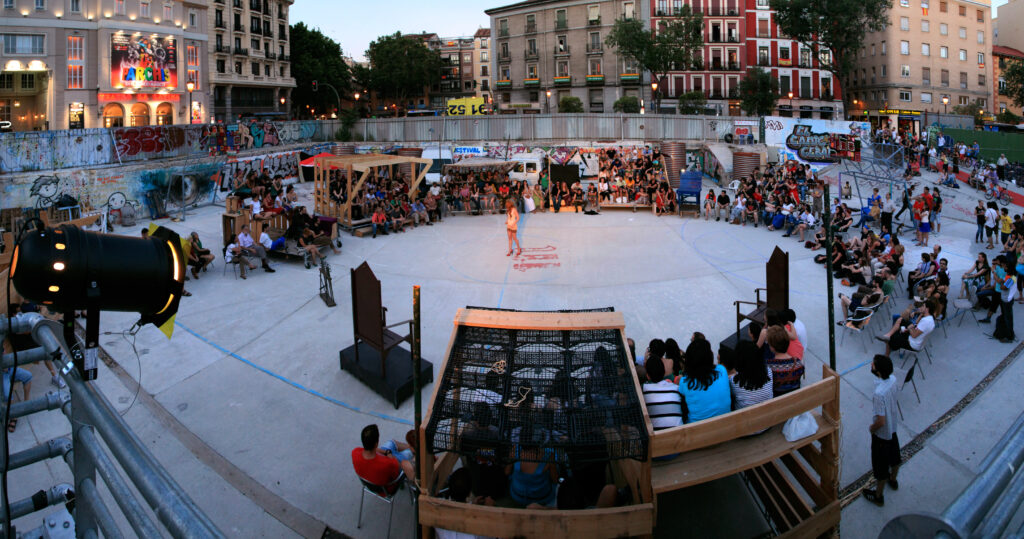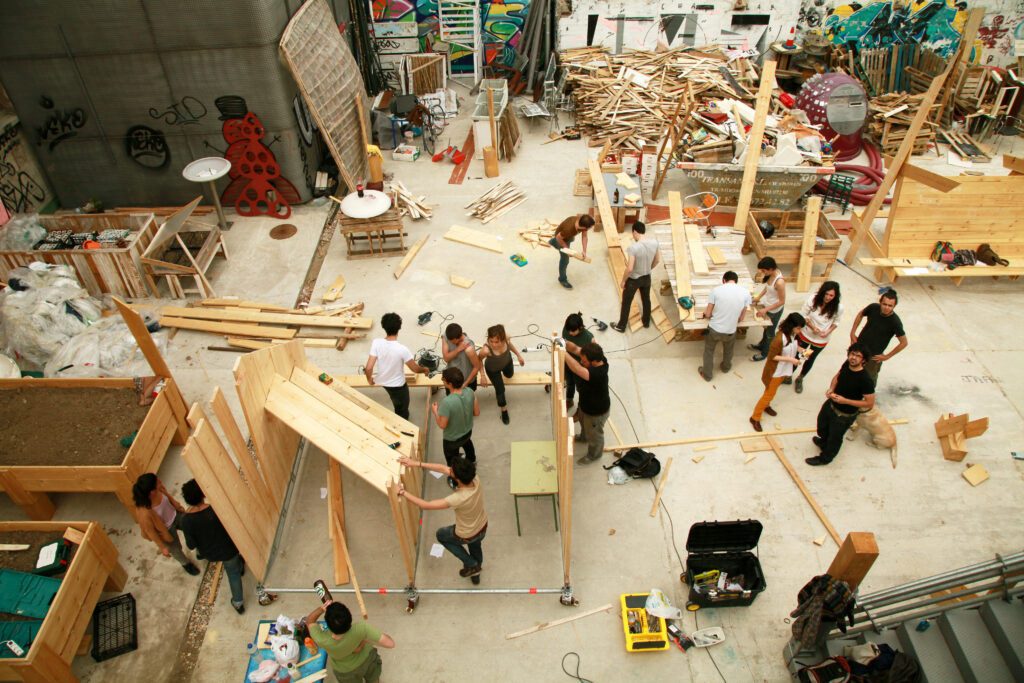Free Culture and the City: A Brief Intro
Free Culture & the City was published earlier this year. I never got around writing a brief summary on the book’s central argument and main concepts. Better late than never. Let me wrap up 2023 with a brief introduction to the book.
The book traces the rise of the free culture movement in Spain from 1997-2017: how technologies, legal arguments & pedagogical tools devised at the end of the twentieth century to define & defend the reach of digital liberties were unexpectedly reworked over the course of twenty years into activist designs & problematizations against austerity urbanism. To do so, the book stages a conversation between urban studies, social studies of science and technology, critical media and design studies, and anthropological theory.
For close to 15 years we did fieldwork & archival work amongst hackers, curators, guerrilla architects, cultural mediators, journalists, squatters, neighborhood activists, artists, civil servants, historians & participants at Occupy assemblies

The book has four parts. Part One tells the story of the encounter between hackers and squatters in the late 1990s—how digital autonomous projects found their way out into the city.
Part Two describes how the urbanization of libre activism was further textured and enriched by the arrival on scene of curators, guerrilla architectural collectives or academics—as well as the work of public organizations, such as museums or universities.
Part Three zooms in on the Spanish Occupy movement (locally known as 15M) through a detailed ethnography of the infrastructures of sensing and ambulation of neighborhood assemblies.
Part Four focuses on the practices of auto-construction of guerrilla architectural collectives, and how their “designs for inhabiting controversies” offer new insights into the pedagogies, systems and methods holding our experiences of cityness together.
Given its historical & multi-sited approach, the book is therefore also an ethnography of Madrid, a city caught between near-Norths and near-Souths, between fatuous regimes of modernization and the legacies of postdictatorial peripheralizations.
The story about the ways in which free culture carved out a space for itself as a political project between the digital & the urban is therefore also a story about the stuff of politics & cities today—what they are made of, how they are remade & what living in them feels like.
We show how free culture activism in Spain drew inspiration from three liberation agendas: the liberation philosophy of hackers, the libertarian aspirations of autonomous activists & the struggles over the right to the city of neighborhood activists. Drawing inspiration from all three agendas, we develop the concept of “free/libre urbanism”, which we contrast with traditional theories on public or liberal urbanism, but also the urbanism of the commons.
The triangulation of the public, libre & commons plays an important part in the argument. We show empirically how activists worked creatively to open new spaces of political action by tactically mixing, antagonizing or blurring their infrastructures, methods and designs.
I noted above that the journey of free culture from the digital to the urban is also a story about what cities are made of, how they are remade & what living in them feels like today. We offer three concepts for each of these dimensions: Matters of Sense, Bricolages of Apprenticeships and Climates of Method. Let me look at each in turn.
The concept of “matters of sense” makes a contribution to a now well-established conversation in STS about how the political can be variously assembled as matters of fact, concern or care. Building on an ethnography of Occupy assemblies, we argue that assembling rehearsed a collective mattering of empathy, sympathy & anticipation that at once solicited and redistributed the material sensibilities of the city—theatricalizing a common sense (con-sensus) of sorts.
The concept of “bricolages of apprenticeships” aims to offer an umbrella term to define the infrastructures, systematics and sensoriums employed by activist collectives as they learn to navigate and reinvent the city against austerity.

“Climates of methods” describes the practical logistics through which activists breath, imagine & conspire together: What atmospheres of distress, excitement, or joy sustain the imagination of fugitive and insurrectionary designs as enduring and convivial habitats?
The concepts of matters of sense, bricolages of apprenticeship & climates of methods were suggested to us by our ethnography as we looked into the interstices of description for different enunciations & assemblages of the informal, material & affective in urban affairs.
We finally bring the book to a close by placing this interest in new languages of description for the city in conversation with the specific history of free culture activism in Spain. Much ink has been spilled over Spain’s “transition” from dictatorship to democracy in the late 1970s – early 1980s. In this context, the “transitional” has become a paradigm for making sense of transformations in the Spanish liberal public sphere.
In the conclusion, we offer a broader analysis of how “transitional” frameworks have been used to explain processes of democratization, modernization and development. Recent proposals for “transitional ecologies” draw—perhaps inadvertently—from this paradigm. Against the transitional, we argue finally that the history of the free culture movement in Spain offers an alternative model for “intransitive urbanisms”.


